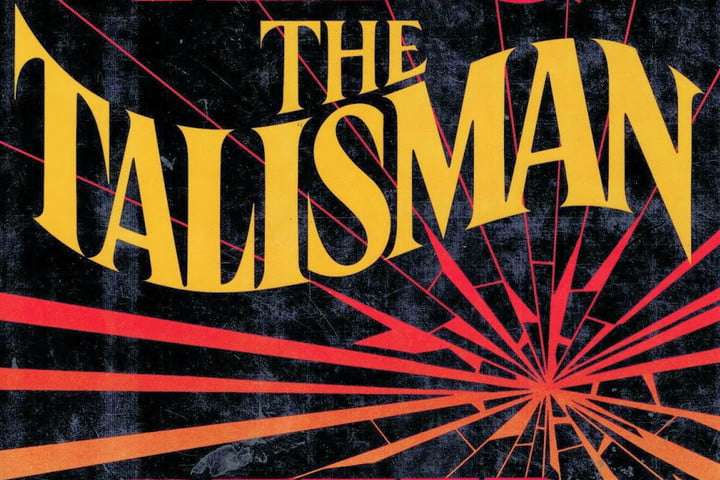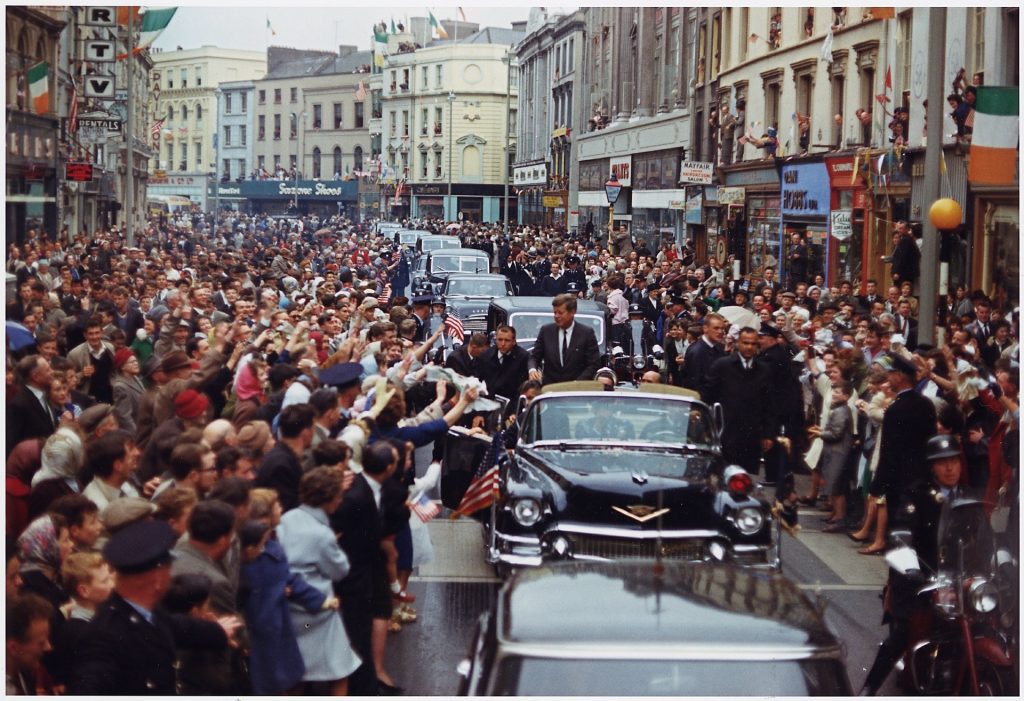
Do you find yourself forever yearning, wracked with wanderlust for a place or time that never existed outside the pages of a book? After you finish the final chapter of that book and then, full of remorse, close the page on a world you’ve been living in for the lifespan of the story, sharing it with characters that have been your friends and enemies for the duration of the tale; do you carry with you a loss that eats away at you and continues tugging at your sleeve, often years afterwards?

I do. I call that thing that I crave, that otherworld that I miss so terribly; a ‘Bookscape’.
The wanderlust began with Tolkien
It’s something that’s happened to me since I was old enough to read books offering a little more substance than Enid Blyton or Nancy Drew. I moved on to chunkier tomes at a relatively early age and delved into Tolkien with great gusto. Firstly rampaging through The Shire and the rest of Middle Earth, with my new friend Bilbo Baggins; and then, craving more, through the Lord of the Rings on a far more epic scale with Frodo Baggins.

That was my first experience. Middle Earth was a magical place on such a grand scale that my single-figure years had problems comprehending it. I had yet to step outside the borders of my country, yet here was this new world filled with all manner of extremes and creatures of all shapes and sizes. My little mind blown, I still to this day long to be in Middle Earth. Whether lolling in the lush and verdant safety of The Shire or overcoming evil in Mordor; I yearned to be there rather than where I was in reality and I revisited those realms over and over again both in my head as well as the books.
The potency of that writing, that it could spark in me the ability to create visions within my own imagination and remember it as if it were real, forty years later, is incredible. Arguably, there were elements of my life that I sought escape from; but for mere words to trigger that mental release beggar’s belief. It’s a magnificently powerful thing to be able to affect someone in that way.
Since then, this phenomenon has occurred on many occasions. It goes beyond that simple wrench that, arguably, should happen when a reader finishes any really well written story. It’s almost as if you leave a part of you in the ‘Bookscape’ and are compelled to return again and again.
The Talisman by Stephen King and Peter Straub
A perfect example of this trend was with the Stephen King and Peter Straub collaboration The Talisman. The protagonist, Jack Sawyer, was written into being as only three years younger than I was at the time I read the chunky book. Within the story he embarked upon a grand quest that spanned years as well as worlds, walking across both middle America as well as another realm known as ‘the Territories’. Every day since then, I have wanted to set out on foot, preferably across America and embark upon otherworldly adventures, using a crystal to ‘flip’ to the other side; and then backwards and forwards between parallel universes. If you haven’t read it, please do, but do avoid ‘Black House’, the follow up book at all costs.

If you do decide to go on that literary journey, tell me you don’t feel the wanderlust that I still do to this day; that you find it hard to resist the temptation to just start walking, or the invisible pull at a train station to just hop on one waiting to depart and see where it takes you, and to what adventures it will lead to the other end. It’s a perpetual urge to escape where I am.
Someone well versed with breathing life into worlds that never existed is Clive Barker. For me, at least. Time and time again I’m haunted by the realms he writes into existence. Weaveworld was my first foray into his adult fantasy/horror books and it led me, eagerly, to a parallel universe woven into a rug and known as The Fugue. Battles between good and evil raged in that place, and Barker throughout writes poetically in such a way that you feel you are truly living the moments, and as a result, they stay with me to this day.
Barker then beguiled me with Imajica, The Great and Secret Show and then the deliciously filthy and dark Coldheart Canyon. Each book portraying other domains alongside ours, offering a glimpse of the fantastical and a taste of a life I just couldn’t live. Each time I finished one of his volumes I felt bereft and sometimes fell into a funk that could only be countered by entering another life, space or time. His way with words as well as combining the real world within which there was always some kind of portal to another, has always struck a chord with me. In my meat and bones, I forever happily carry a multiverse created by Clive Barker.
I asked friends, family and people I interviewed for a series of articles I put together, if they had particular ‘Bookscapes’ that they too hold in their hearts. It seems that many do.

JK Rowling haunts the masses
Hogwarts features highly, as do many King and Barker novels. Then there are more unusual ones, worlds full of challenges and plights that you would think less of a wrench when escaped. The Book Thief featured, which for those that haven’t read it is set in WWII and full of trials and tribulations linked to harbouring a Jew in Hitler’s regime. Another is Life of PI, which is almost entirely based upon a boat shared with a Tiger, or stranded on a rat infested island. Unusual ‘Bookscapes’ to yearn to return to, but who are we to judge where a reader wishes to live in their heads? No two people are alike, so naturally, neither are their mental escape pods from routine.
The one that sticks with me above all the others, the ‘Bookscape’ that continually whispers in my ear while the rest only occasionally bob up to the surface of my consciousness, is the time and the entire lifestyle contained with Stephen King’s 11/22/63. Unsurprisingly, and I can see the theme here too, this book involves a doorway to another world. I’ll avoid spoilers, but the protagonist intends to stop JFK being shot and time travels back to the late 50s and early 60s as he needs to be in it for the long haul, to avoid those pesky stumbling blocks in time travel that are paradoxes.

What King does so brilliantly is spin us a purer, uncomplicated world and takes us through almost tangible streets and towns, relationships and technology of the time. Everything is different and life so much simpler with all the things that we take for granted still being the stuff of the future. Food, drink, cars, prices of houses and how humans interact with each other. The whole book is so beautifully portrayed, the era so believable even by Kings descriptive standards that I miss it every day. I wish that were an exaggeration, but I really do want to walk those roads and witness the purity of things back then. I want to taste the root beer at the soda fountain in the chemists.
Is it the time travel? Is it that it’s another world where the troubles are those of someone else? Is it just the option of having the portal to slip in and out of this world? Possibly it’s elements of all of these as well as our need to escape the mundanity, drama and trials of our real lives.
What writing this piece highlighted to me was that I have a long, long way to go with how I portray my ‘Bookscapes’. I have relied on being overly descriptive about the people and what they’re doing, and been purposely vague on the places themselves. My view had been to allow the reader to build up their own landscapes, but now I want to assist that. I want to inhabit my readers.

I’ve been told that elements of what I have written about have stayed with people. But does it haunt them like the places and times in these books haunt me? Do they relive those worlds and tread the same paths over and over in their heads? To my mind, not a chance.
So my message to Tolkein, King, Barker and all of the authors wonderfully gifted in crafting other worlds purely with words glued together by our emotions; thank you. Thank you for getting under my skin and continuing to tug at my needdy sleeve. Thank you for that door, that portal or wormhole that gave me temporary respite from whatever it was that I needed a break from. And when it comes to my own works and the ‘Bookscapes’ within my humble pieces of writing, then I say: “Yes, challenge accepted”.
Paul David Chambers – PoetsIN Co Founder

Excellent read. Love the word “Bookscape.” This piece sent tumbling through time, re-visiting book landscapes I’d tip-toed through in the past. (Great journey, btw.) Thanks for adding to my vocabulary—as well as my memory banks.
Pingback: Book Sniffing - The Way Book Nerds Get High. – PoetsIN